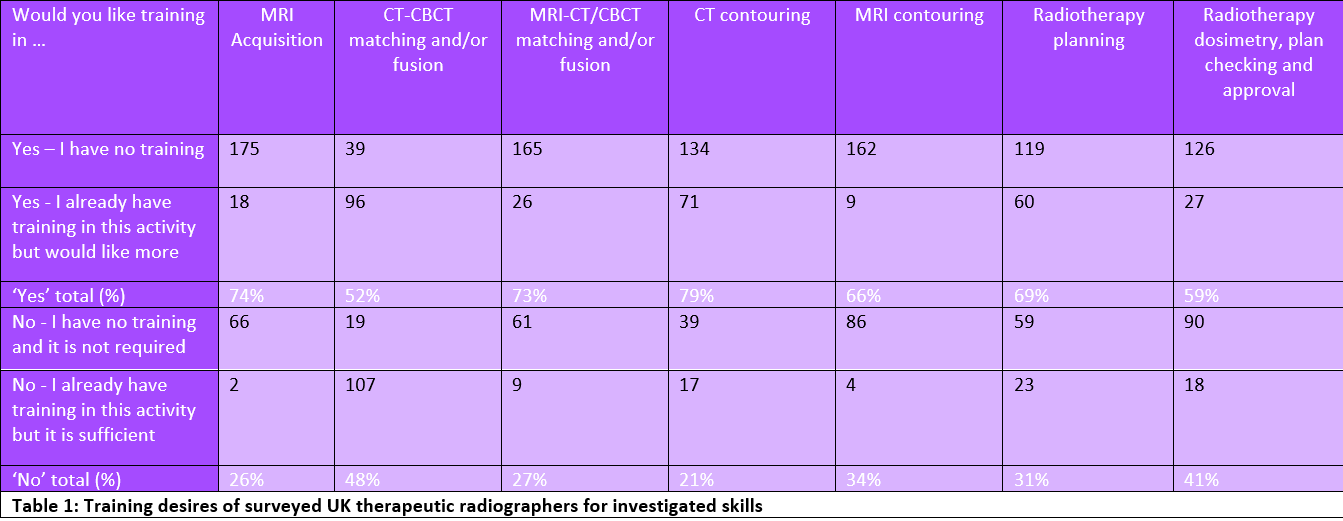A total of 261 responses were received from 77 UK centres (96% of NHS UK centres). Table 1 shows the training desires of the investigated skills.
MRI Acquisition: 74% of participants wanted training with a large proportion reporting never having training. This shows TRs see this skill as important but do not have enough experience currently.
CT-CT/CBCT Matching: Participants were evenly divided between wanting and not wanting training, and this was regardless of whether previous training had been undertaken. This suggests there may be discrepancies in training programmes across the UK.
MRI-CBCT/MRI Matching: 73% wanted training for this skill with a large proportion reporting never having training. This implies that despite lack of exposure, TRs view this skill as important.
CT Contouring: This skill has the highest frequency for wanting training (79%). This shows that TRs value this skill and see it as important to roles in the radiotherapy pathway. Only 39 (15%) participants thought training for this skill was not required.
MRI Contouring: Two thirds of participants (66%) wanted training. Of this group a large proportion had not had any training demonstrating that UK TRs see the importance despite lack of experience.
Radiotherapy planning: 69% of participants wanted training. Only 23 (8%) participants thought current training was sufficient whereas the 60 (23%) participants who did have training desired more.
Radiotherapy dosimetry, plan checking and approval: 59% of participants wanted training in this skill. 90 (34%) participants thought training for this skill was not needed.
Preferred methods of training were:
Clinical Practice: This method was preferred for training with 95-99% rating it as suitable with 71-84% of participants rating it as highly suitable.
Guided reading: 83-93% of participants thought this method of training was suitable with 34-49% rating it as highly suitable.
Workshops and/or courses (up to 1 day in length): 82-92% of participants thought this method of training was suitable with 36-49% rating it as highly suitable.
Workshops and/or courses (over 1 day in length): 75-89% of participants thought this method of training was suitable with 33-50% rating it as highly suitable.
